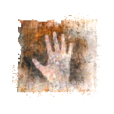Please wait a few moments while we process your request

NANIKI
Kalinago Barana (Sea) Stories & Conservation Project
Monitoring and Evaluation
Individual M&E forms were completed by all facilitators and this assessment from the Karina Cultural Group, Oonya Kempadoo and workshop facilitator, Mr Dangleben, provided the following:
Best results:
Challenges:
Lessons learnt:
Financial considerations:
Recommendations:
Best results:
- Opportunity was provided for inclusiveness
- Mobilized Key resource persons, sponsors & participants
- Enthusiasm for the objectives: documentation, research, youth and community participation
- Recording elders in action
- Raised the awareness & appreciation for Kalinago culture especially sea practices
- Helpful to building the capacity of the Karina Cultural Group for future socio-cultural work
- Timely, relevant, participants were very interested in the project.
- Outputs: recordings, notes, literature, project planning, overview documents
and creative works. - People’s togetherness, people wanting more
- Generated a lot of ideas
- Togetherness in decision making
- Flexibility and a high level of creativity (of the team and participants)
Challenges:
- Technical issues
- Roles and responsibilities need to be clearly communicated. Too much was left to the coordinator.
- Lukewarm support given to the project from community leaders
- Transportation and camera/recording support
- Time and program management: Varied expectations - what could be done within the budget and timeframe - changing plans, overstretched budget and human resources. Time lapsed (during the workshop) due to participants lateness and absence
- ‘Teaching’ methods employed rather than youth-led creative focus, youth expression ‘corrected’ by adults and few results showing consideration of the future.
- Communications (and virtual collaboration) between the team
- Documentation - a reluctance to write, digitize, sort and store
Lessons learnt:
- A more mature (participant) age group could have resulted in better/stronger output and processing of the research.
- More community sensitization could have been done
- Technical support underestimated
- Selection of project facilitators based on skills is critical
- Training (for research methods and workshop skills) should be increased
- Equipment needs underestimated
- Good contribution to the preservation of the Kalinago cultural patrimony and the tourism product which will be used by Kalinago Tours in tours to the community.
- Development/publication of booklet for children being actively considered.
- Skills and knowledge to pursue career
Financial considerations:
- Local community support responded generously, even if last minute.
- The constraints for delivering a 10 day project with very modest budget on short notice.
- Expectations and the desire to expand the project beyond the actual budget was real due to the demand for such a project and this called for much voluntary input from all the facilitators, especially the Project Coordinator, while all involved are already overstretched by doing unpaid community work.
- Community ideas of what a ‘project’ means - big money - added further expectations and costs to the project (e.g awarding plaques to interviewees to reverse past experiences of exploitation).
- The cost of administration and budget revision to accommodate changes to the project due to Covid-19 were absorbed by the facilitators.
Recommendations:
- More like this needed - bigger budget, more facilitators and participants
- Capacity needs building within the Karina Cultural Group and community members in order for them to create their own projects, proposals and secure funding.
- Technical capacity (for recording, virtual and technical equipment) within the community needs building or should be established, along with other community human resources such as social media experts.
- Budgets for projects like this should include expenses for Cultural Leader/elders input (who support facilitators) and factor in the role of formal events, ceremony and performance production.
- Professional development in areas like project and time management, communications, documentation & research techniques, youth-friendly workshop approaches - will help tremendously.
- Finding these resources from Indigenous organizations and associations who are training Indigenous people how to preserve and protect their own intellectual property and culture - is recommended.
- Follow up project development for editing and compiling these project results into a book that can serve the community and schools.
Oonya Kempadoo © 2021 FDL
Index:
- The Project
• Summary
• Background
• Foreword
• The Team
• Planning and Community Engagement - Traditional knowledge research
• Process
• Online literature review
• Interviews with history experts
• Interviews with community members/elders - Storytelling Workshop
• Day One
• Day Two
• Day Three
• Open Day - Monitoring and Evaluation
• Press coverage and feedback
• Conclusion and recommendations - Credits and Acknowledgments

